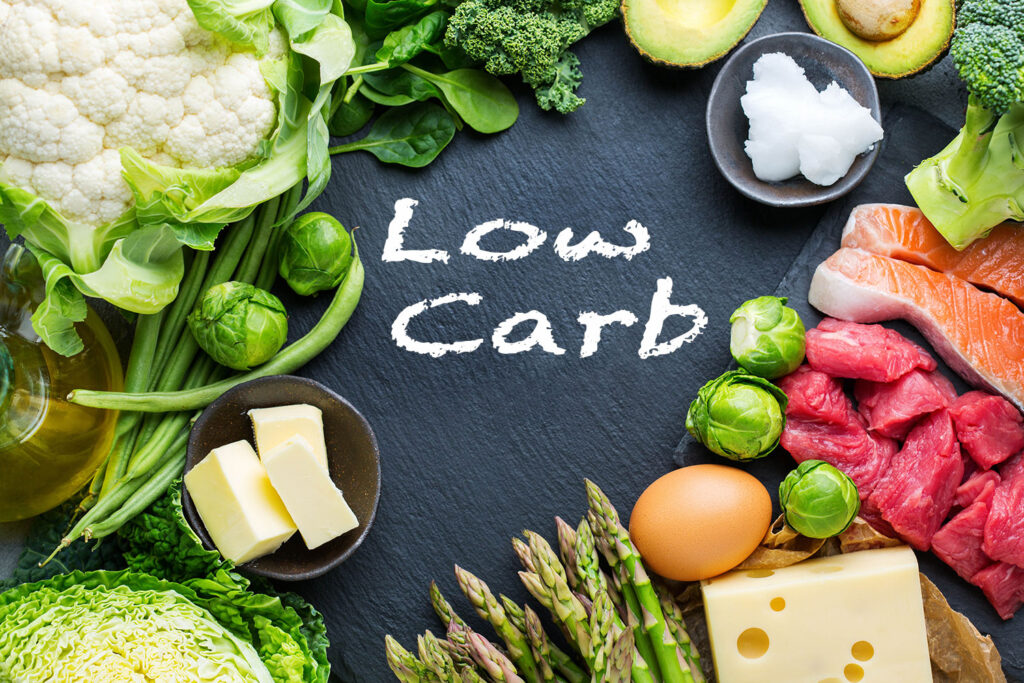Does Low Carb Diet Cause Constipation? Are you on a low carb diet? If so, you may be wondering if it’s causing constipation.
Does Low Carb Diet Cause Constipation
Constipation can be an issue for anyone who tries to restrict their carbohydrate intake, but it’s especially problematic for people who have gut issues like celiac disease or irritable bowel syndrome (IBS).

Research Findings on Low Carb Diet and Constipation
Low carb diets are associated with constipation.
Low carb diets have a high fiber content, which can cause constipation by slowing down digestion.
Dietary fiber is good for digestion and helps prevent constipation, while also helping you feel full longer after eating a meal. Dietary fibers come in many forms, including whole grains (such as oatmeal) and fruits (like apples), vegetables (such as carrots), legumes (beans), nuts/seeds/grains like flax seeds etc…
Fiber Rich Carbohydrates to Aid Digestion
Fiber is a type of carbohydrate that your body can’t digest. Because fiber helps to keep your digestive tract healthy, it’s important to eat enough of it on a low-carb diet.

Fruits and vegetables are nutritional powerhouses containing fiber; they also provide vitamins and minerals that may help prevent constipation. Beans and whole grains contain more fiber than other types of grain products such as white flour or white rice, so they’re beneficial in helping reduce constipation as well.
Some people take supplements containing soluble (soluble) fibers to increase their daily intake of this beneficial food additive—but you don’t need them if you’re eating enough fruits, vegetables and beans already!
How to Keep Constipation Away?
- Consume more fiber.
- Drink plenty of water.
- Exercise regularly and eat a balanced diet that includes lots of fruits and vegetables, whole grains, lean protein sources like fish or chicken breast, low-fat dairy products (like Greek yogurt), legumes or nuts as well as healthy fats such as olive oil or avocado oil to keep you feeling energized throughout the day without weighing you down with unwanted calories.
- Take probiotics to help your digestive system function better naturally by helping to balance out bacteria in your gut which can cause bloating if they overgrow too much on their own! Also try adding probiotic supplements into meals when possible so they don’t get wasted down there while still being digested properly by your body instead.”
Frequent Constipation and Consultation with Doctor
If you think that your constipation is a normal part of aging, then you may be right. However, if it persists and causes more than occasional discomfort or pain then it’s important to consult with your doctor.

Your doctor can help identify the cause of your constipation and treat it accordingly. They will also be able to give you advice on other health issues that may be contributing towards this problem as well as ways in which they could help prevent further occurrences of constipation in future situations such as traveling abroad or new diets (such as low carbohydrate diets), etcetera
Minerals and vitamins play a vital role in the treatment of constipation.
A low-carb diet can be very beneficial for your health. However, it is important to know the pros and cons of this type of diet so that you can make an informed decision about how much carbohydrate intake to have in your daily routine.
Although a low carb diet may help you lose weight and improve overall health, there are some side effects associated with its use such as constipation or diarrhea. If these symptoms persist despite taking medication for them, then it’s time to see a doctor who will prescribe an antidiarrheal medicine that works better than over-the-counter products like Imodium AD (loperamide).
Conclusion
If you have been suffering from constipation, consult your doctor to see if a low-carb diet can help you. However, it is important to note that this kind of diet may not be suitable for everyone and there are other reasons behind the problem of constipation.






More Stories
Is Cornbread On The Mediterranean Diet?
How Many Carbs Are In Diet Pepsi?